In this article, I’m going to be talking about how to have great sex after menopause.
1. Lubricants and vaginal moisturizers.
It’s really important to use the right ones for your needs. What I mean with that is the right pH balance and that they’re water free. I talk about this in another video, but quickly, no water means no chemicals. If you’re trying to get pregnant, you also want to use a lubricant that has a higher pH. For example, seven or eight. An acidic vagina is not conducive to alkaline semen, so using an acidic lubricant, which many of them are, can be a barrier to pregnancy. Conversely, if you’re 40 plus and perimenopausal or a menopausal, you’ll need a lubricant or moisturizer that has a lower pH between 3.5 and 4.5 for the vagina, and between 4.5 and 5.5 for the labia.
There is our company, Damiva and a product called Mae, which is chemical-free, water-free, and it’s a vaginal moisturizer formulated with the optimal pH for the vagina.
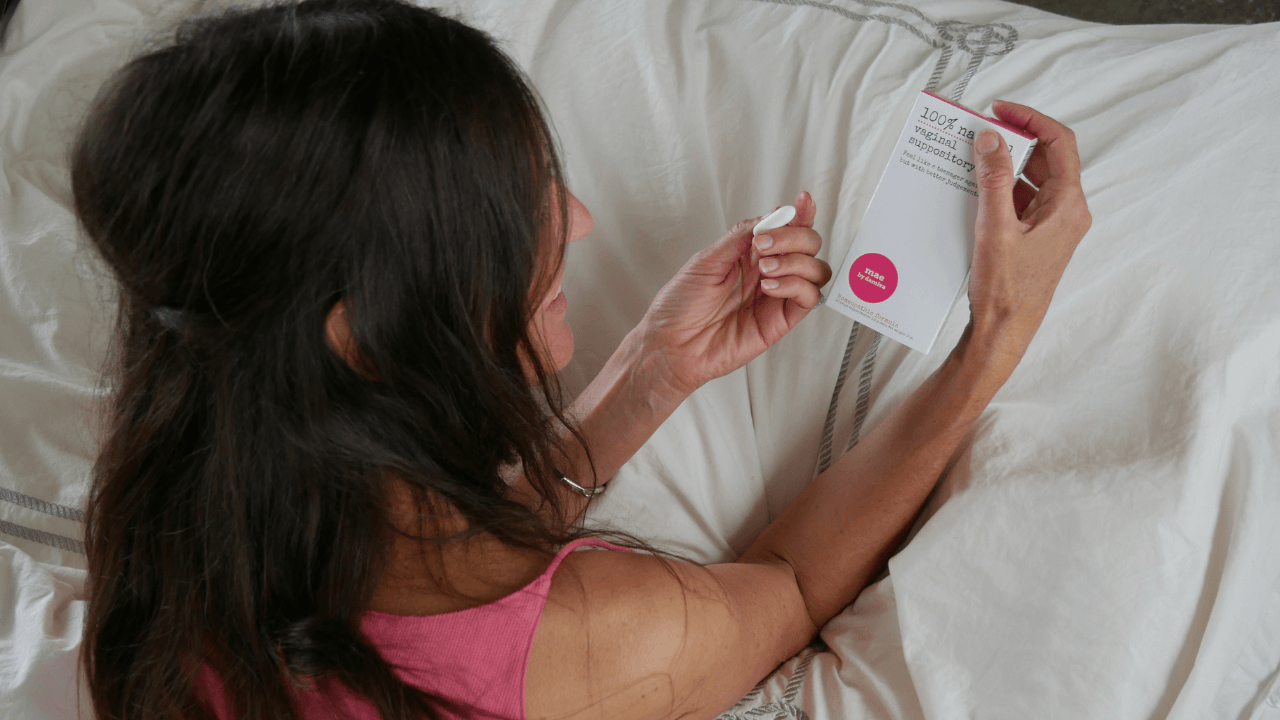
2. Ask your doctor or menopause specialist about your options.
Ask about your options and maybe replacing your lost hormones. Lubricants and moisturizers may not ease all of your dryness and pain, and there are prescription medications that may help including vaginal estrogen, vaginal DHEA and other hormone estrogen-like drugs and hormone replacement therapy.

From unhappy, dry, and sandpaper to silky, smooth and feeling good. That’s Cleo. Cleo is a 100% natural labial balm to moisture and soothe “your other lips”. Cleo is chemical-free, water-free, pH optimized and helps maintain and restore your delicate labial skin’s natural flora. Ideal for daily use or as needed. Get the most silky, lovable lips ever.
3. Try pelvic floor therapy.
The muscles that support your bladder and vagina can get weak or tight. Both can make sex uncomfortable. There are exercises that can help you retrain your pelvic floor. They’re called kegel exercises, but you need to know the right ones to do since they can make tight muscles even tense. See a pelvic floor physical, physical therapist for the right diagnosis and treatment. I also have other videos on kegels and who they’re for and who are they’re not for. If your vagina is narrow, your therapist may also suggest dilator therapy to slowly stretch the muscles around your vagina.
4. Start yoga, deep breathing, and meditation.
These are some of my favorites! Yoga, breathing, and meditation may help your libido and your orgasm. That’s partly because they tend to lower stress, anxiety, and depression. The mindful activities can also help you become more aware of the subtle changes in your body. Posture alignments can help you with energy and blood. For example, hip openers can help open the pelvic floor, and breathing can help relax overly tight pelvic floor muscles. Both breathing and meditation can help you get out of your head.
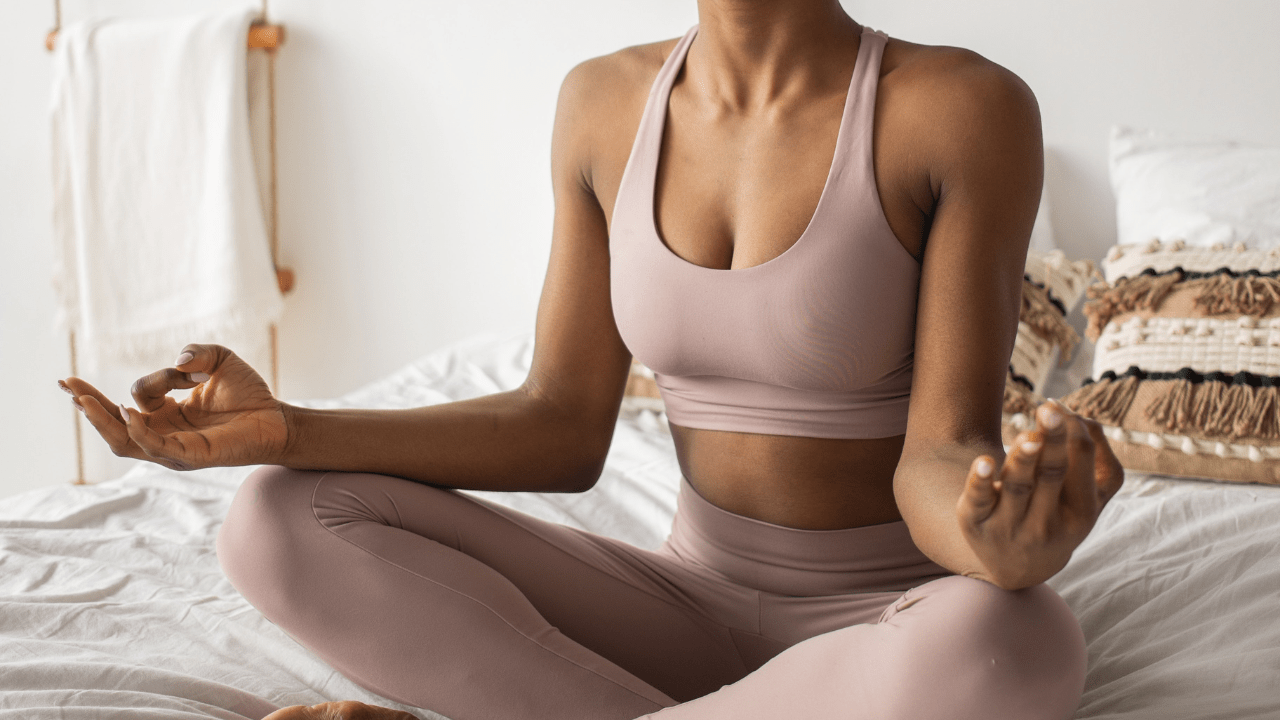
5. Use massage and vibration therapy.
Regular stimulation can pump up blood flow and lubrication to be inside and outside of your vagina. You may want to use a vibrator with a lubricant several times a week, and don’t forget to use a lubricant every time you use one.

⭐️⭐️⭐️⭐️⭐️ “LOVE, LOVE, LOVE this stuff! Finally after trying almost every product out there I’ve finally found you. Mae by Damiva has changed our intimacy dramatically. Thank you!” Karen P.
Shop Mae here…
6. Have more sex.
Once you can have comfortable sex, you should try to have more of it. That’s because it helps with blood flow and moisture to your vagina. Don’t be afraid to change up your positions. You may find that sex feels better when you’re on top, and that way you can decide, you know the depth or speed that feels good for.
7. Spend time on foreplay.
After menopause, it can take a little longer for you to get turned on and things to get going, and that’s normal. Foreplay can be a fun way to trigger your responsive desire. That way when you don’t wanna have sex out of the blue, you can enjoy intimacy once you get started.
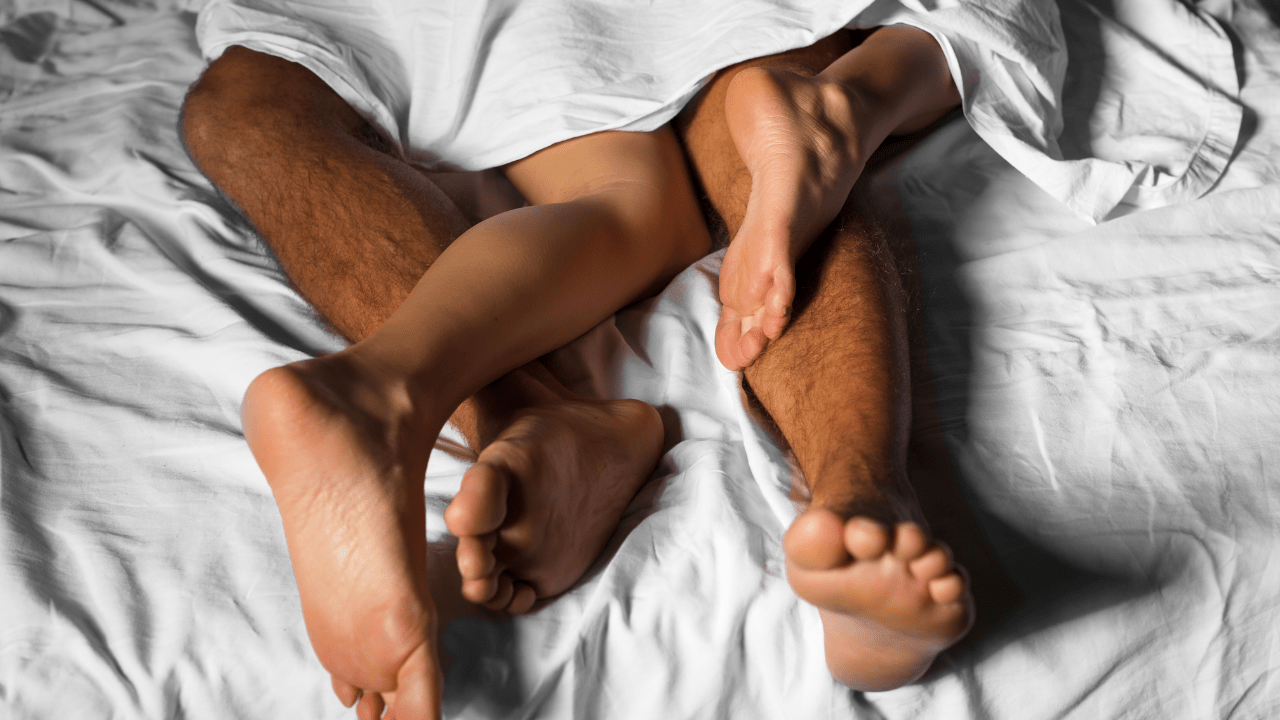
8. Try other sexual play.
Intercourse isn’t the only way to share intimacy. If penetration hurts too much, add more oral sex. You can also masturbate or experiment with toys.
9. See a therapist.
It’s normal to lose interest in sex. If you’re stressed out or have a problem with your relationship. Depression or anxiety about aging can also leave your sex drive lagging. A counselor or sex therapist can help you find ways to manage your mental health. They can also help you connect with your partner.
10. Make healthy lifestyle changes.
Try to get at least 30 minutes of exercise a day. Physical activity can get your blood flowing. It may help you lose weight if you need to, and boost your self-esteem. Don’t forget to get enough sleep and eat a healthy diet. Also make sure to get treatment for any other medical conditions like uncontrolled diabetes, high blood pressure, and heart disease, which can impact your sexual functions. And if you smoke, quit because it can damage your blood vessels.
So, if you found this article helpful, please like share with a friend who may find it interesting and make sure to give our 10 tips for better sex after menopause a try!
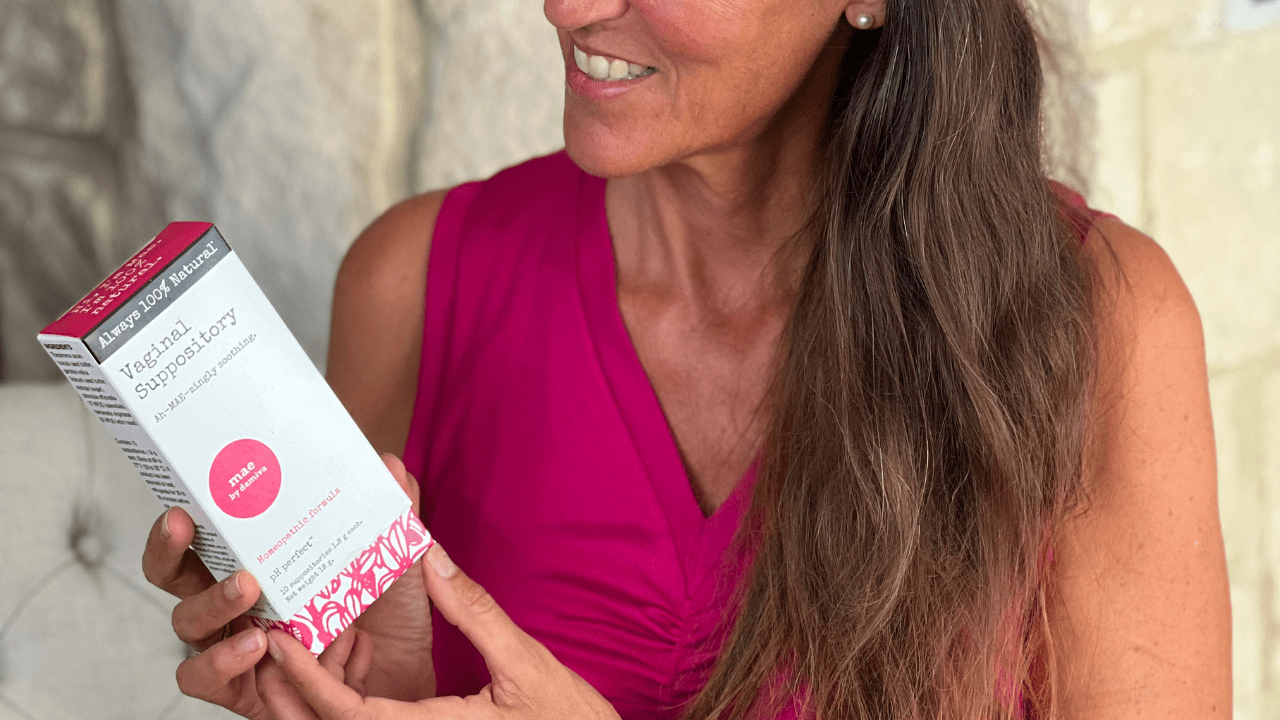
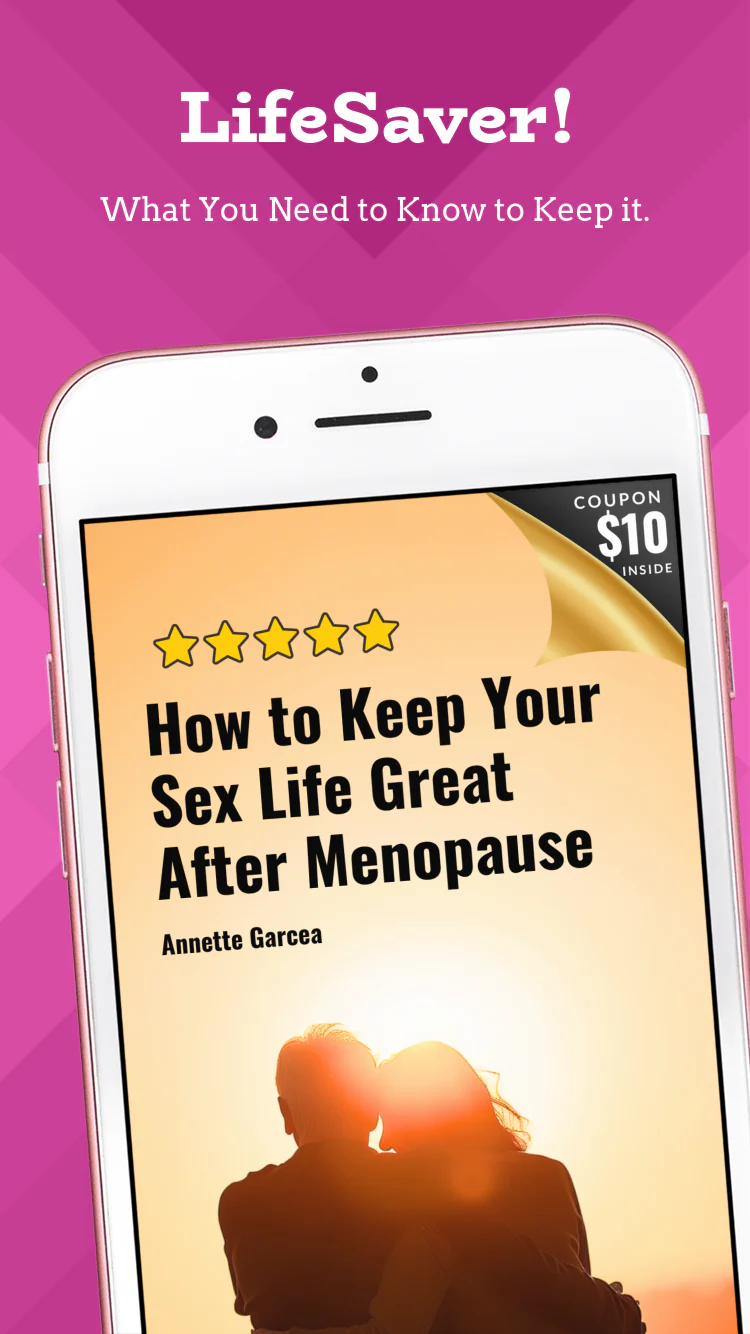



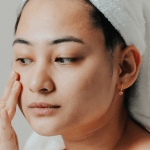





I need to have my wife try this our sex life is on a scale is 1. We are looking at retirement soon and if we can’t be intimate I don’t see a very healthy retirement ahead. She has no interest in sex. Please help